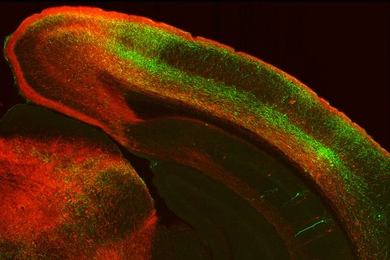The leaked e-mails from the climate scientists at the University of East Anglia (UEA) have caused a huge public relations headache. The e-mails, in which the scientists seemed to question or even exaggerate their research, have provided new fodder for climate-change skeptics, who now feel they have “proof” that global warming is a hoax. The e-mails may be proof of nothing other than frustrated or impatient scientists, but the scientific community nonetheless has to deal with the fallout — the public’s increasing doubt about the validity of climate science, and maybe even doubt about scientific research in general.
“The Great Climategate Debate,” held on Dec. 10, featured a panel of MIT faculty addressing the issues — both scientific and political — surrounding the controversy in the hopes that it wouldn’t become the main focus of this month’s United Nations Climate Change Conference in Copenhagen, Denmark. The debate involved the many issues raised by the scandal: the validity of climate science, the motives of the hackers who leaked the e-mails, the need for responsible scientific reporting and ethical standards, and the way the public interprets and understands information from the scientific community.
Kerry Emanuel, the Breene M. Kerr Professor of Meteorology, fears that Climategate was a “premeditated distraction from the main issues” of climate science. Emanuel said he’s concerned with the identity and motives of the hackers, citing the very rich “machine” of global warming deniers as a possible culprit. As for the e-mails, he thinks they show nothing more than “humans — a few with failings. Mostly, it shows scientists hard at work.”
Richard Lindzen, the A. P. Sloan Professor of Meteorology, believes the e-mails were leaked by a whistleblower within the Climate Research Unit who, like Lindzen, is disillusioned by what he sees as the scientific community’s one-sided argument over climate change. “Undeniably,” he said, “we are dealing with issues illegal and unethical.” The debate, he said, is whose illegal and unethical behavior is the larger issue: the scientists or the hackers?
For Lindzen, the central issue is the alleged suppression and manipulation of raw temperature data by climate scientists called into question by Steve McIntyre and Ross McKitrick. He thinks that after a thorough examination of the e-mails and the remaining supporting data, the validity of their studies should be reviewed — adding that it could be a great project for MIT’s Undergraduate Research Opportunities Program.
Although Ron Prinn, the TEPCO Professor of Atmospheric Science and director of the Center for Global Change Science, thinks the e-mails are unethical and unprofessional, he believes this means little for the validity of the UEA scientists’ studies. This controversy, he said, should not cause us to reevaluate our concern over global warming. Prinn notes that the larger body of evidence remains robust: The UEA scientists represent just a few of the many scientists from institutions around the world who are studying climate-change issues.
Emanuel notes that the historical data for the hockey stick graph was not necessarily deliberately destroyed. While the United States makes environmental data available for public good the European Union sells theirs. Signing a contract with the EU agreeing not to share the data with a third party was a mistake, but they were not definitely responsible for destroying the data.
Stephen Ansolabehere, a professor in the Department of Political Science, suggested that the MIT community use the controversy as a teachable moment on ethics and responsible reporting. As scientists are increasingly pulled into the public domain over issues like global warming, they need to reevaluate current practices and develop scrupulous research standards. Ansolabehere predicted that Climategate will lead to closer government scrutiny of scientific data.
Of particular interest among the panelists was how the controversy would affect climate change policy at the Copenhagen conference. Panelists said it would depend on how policy makers measure risk. They have to ask themselves, how important are the ethical standards of the UEA scientists and their missing supporting data versus the potential impact of climate change and its effect on society. “We have no other planet to retreat to,” Prinn cautioned, and “we can’t head west.”
Certainly, Climategate highlights the need for improved communication between scientists and the public, the panelists said. The apparent unethical behavior of the East Anglia scientists could damage popular support for the scientific community, and that could affect policy making and government funding. The two political scientists on the panel, Ansolabehere and Judy Layzer, noted that governments interpret scientific data to make public policy, which leads to the question: is it the scientist’s job to interpret data for the public? “Policy making is not linear,“ explained Layzer, the Edward and Joyce Linde Career Development Associate Professor of Environmental Policy.
“It’s an ongoing battle to authoritatively define a problem and provide the best solution.” Policy is affected most by the side that best communicates its view of the problem and its solution.
In the case of global warming, those who aim to discredit science focus on the uncertainty of the data and shift attention to the future costs of research (also uncertain, but rarely mentioned). If you focus on the science (data sets alone) versus the scientific outcome (the impact on society) it is easy to discredit science because the public cannot interpret data sets on its own.
If Climategate affects public perception of science, how can scientists maintain credibility in public debates, and who can take on the role of a credible science communicator? Unfortunately, there are few science writers to interpret science and related data sets to the public. Meanwhile, the leaked e-mails had juicy sound-bites that were accessible to the nonscientific community. Peer-reviewed literature is where science lies, not in blogs or opinion pieces on the Web. Ultimately, all scientists want the same thing: to understand the way our world works. Layzer said we need to remind the public that “although scientists are human and not always judicious, they still offer our best hope of making sense of the natural world.”
A video of the debate is now available on MIT World. Henry Jacoby, professor of management at the Sloan School and co-director of the Joint Program on the Science and Policy of Global Change, was the moderator.
At Dec. 10 forum, MIT faculty experts discussed what 'Climategate' really means for climate science and the ongoing policy negotiations in the Congress and at Copenhagen.
Publication Date:




